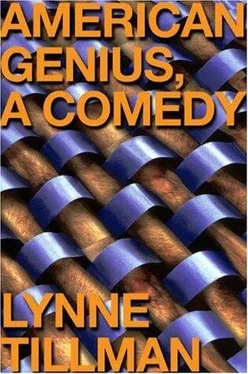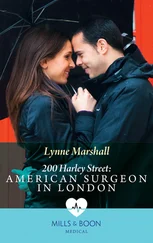I hope, after breakfast, to leave the dining room quickly, even invisibly, regularly planning my getaway, deliberating when is the right time, though the right time for me isn't for another resident, and sometimes I have become invisible, on occasions when it appeared risky to be present, for a number of reasons, not only because of the arrival of police, although that has occurred, the police have arrived and I have vanished, brushing past them as if I were a spirit, but I don't yet have a criminal record. I leave fast especially if there is peace and contentment, when nothing aberrant has happened, believing superstitiously that malingering might provoke the furies, or I leave fast if the conversation has upset or altered my mood, affected my humor, especially in a direction I didn't want it changed, though I anticipate alteration around people, which is why I malinger in bed, switching on and off the radio, not sanguine about being subjected to what is uncontrollable, which may he the reason some claim the table's attention and don't allow others to speak, since any control might protect them. If in a discussion about history or politics, the residents parrot TV and radio commentators, or an argument ensues that is older than its speakers and as intransigent, I'm disheartened or discouraged, and all at the table might leave it disgruntled, whether they ate cereal, eggs, or blueberry pancakes. If a newcomer who, just the night before, told a beguiling tale that entranced me, but then the stranger proclaims a dim conviction at breakfast, what he or she said previously is revamped by this dimness and I lose interest. If I have recently enjoyed a stranger's tales, because the narration was vivid, delivered with an awareness of its listeners, though the stranger may have told the story many times before, I can prefer that person's company to that of longstanding friends, since I am curious about how people live and why, and, in some respects, I'm a xenophile, but in order for my love of a stranger to sustain itself, strangeness must be sustained, and the foreign body mustn't reveal too much. I want the stranger to remain untouched, which contradicts my other desire to know more than I should, yet some things I never want to know, fearing disillusionment, while a friend, someone I have known for a long time or who knows me, may be excused or rather understood for the same opinion. This is unfair, but that doesn't matter, because to achieve fairness requires work, equanimity requires effort, a position comes from a sense of place, and if you lose yours, you also can't maintain a position and continue to believe in it, you can't be fair. I don't want to exert myself, especially in the mornings, which is usually why I don't want to go to breakfast, except that I'm hungry. More and more, I want the freedom to be arbitrary.
After a discussion in which righteousness of every stripe has been broadcast, during which, against my better judgment, I might voice my own, I might dejectedly return to my bedroom, whose bed has already been made by d housekeeper, who has also placed my nightgown on the pillow, folded just so, fluffed the three pillows to their fullest, screwed on the tops of plastic bottles, and stacked the books and drawing pads I threw by the side of my bed into a neat pile, and then, entering the room, which is now without some of my traces, I immediately lie on the neatened bed, with hospital corners that invariably and nauseatingly remind me of camp, the gray hunk, and the six other little faceless girls. Again my head is a mob of arguments, a clutter of loose phrases and ill-conceived ideas, so then my skin starts to burn, and I know that the small veins on my nose and chin have become irritated by the exchanges to which I was subjected and engaged in, to my regret. On some mornings, the residents' table talk ropes me insidiously to my plain wooden chair, simply because I hope that something might happen that affects, in a positive direction, the course of the conversation so that I won't leave it disgruntled, but this rarely happens, since the longer I stay the worse it is, and then I flee, feeling worse than I might have had I not hoped for something better. Hope is necessary, but it is the cause of many dilemmas, and sometimes my day is ruined, its promise assassinated, and then I wish I were in any other place, or alone, or with any other persons, especially the Polish woman, who is an efficacious stranger, whose deft strokes on my forehead might remove more than dead skin, though I know that isn't likely. My organs won't be healed of a mysterious ailment that thrives undetected, but the alleviation of worry, the elimination of dead skin from the body, has a placebo effect, the truth of which can disconcert some. Placebos often help as much as medicines, and to some it begs credulity that the mind can affect the course of an illness or cure the body of physical suffering, but it can, since the mind is part of the body, or the mind is also the body, and mental illness is also physical illness and vice versa. The actions the Polish woman performs on my face, or the massages she gives me, calm me, her indifferent strokes placate me, and sometimes I imagine her powerful hands and arms kneading away the impurities that threaten to overwhelm my system, and in its anonymity having a facial restores me to myself and contradictorily encourages a sense of dissolution into a larger humanity, since all have faces that could be steamed and cleaned, if they had the desire, inclination, or money, though even if they could afford it, some might not want a facial, thinking it wasteful and without redeeming value. I could defend a facial's worth, were I forced, and if I were tortured, I would tell everything I knew.
What I'll never know is significant, but some of the people who could have given me answers are gone, and some who are here, to whom I speak or listen regularly, wouldn't know, since what I want to know might not have definite answers, or I might not have the way or wherewithal, even the words, to form the necessary and appropriate questions. I'm a recorder and collector, a listmaker, I studied history, philosophy, literature, and have taught American history, but dissuaded from the academic life after receiving a Ph.D., or unsuited for its piquant rigors, even though well equipped to be an historian, since I could hear or read something and remember it, I subsequently trained as an objectmaker and designer, while haphazardly pursuing odd jobs. I also wait, in the sense that a young man here, when asked what he did, responded, "I'm a waiter," and, when asked, "But where do you work?" the young man said, "I'm just waiting." I am waiting, not just for a letter or telephone call, but for that which has so far escaped me or might come unexpectedly, I can easily wait for mail to arrive, especially here, and waiting for it, even with the advent of cyber deliveries, can be a meaningful part of my day, as can waiting itself.
Sometime ago, months and months I believe, though time is unimportant here, and seemingly grows more insignificant every day, when I hadn't been expecting anything specific, but had the gnawing sense that something must happen to me soon, and should, even an accident, because otherwise life would be the same, and I seek change or create a situation that might effect it, a postcard arrived. It was typed on an old-fashioned typewriter and induced a blurry recognition, similar to confusion between a memory and a story about the past. Its signature looked scrambled or scribbled, even scratched, and I'd seen the handwriting before, I thought, or knew the hand, but also in this guise or context didn't know how I knew it or from where or when. On the front, there was a jumbo jet plane flying in a blue sky and on its hack the sender had typed: "Out of here, going here and there. But where? Where are you? Miss you." Then the scratchy signature. The stamp was franked in Omaha. I was pleased it had arrived and spent an hour, more or less, on it. I don't wear a watch, which bothers some of the residents here, who are concerned with time as I am, though less concerned than people in more ordinary or less-privileged situations, who suffer from the stress of regular schedules, but I was trying to figure out what the jet plane postcard portended. The beginning of worry sounded inside me during that hour, and my skin crawled, but then I worked to subdue myself by various methods, including a mug of herbal tea and slow, deep breathing. Some people's skin crawls incessantly, they suffer from vermiculations, or the sensation of skin crawling, and there are also various neuralgias, or nerve irritations, in which the skin burns and is accompanied by inflammation, which is painful, since often it is inflammation, when white blood cells flood an area of the body, that causes distress and pain; peripheral neuritis is the sensation of damage to a peripheral limb, one that is gone, like an amputated leg, which still produces sensation, but it is in a way a feeling of loss, since the body, or the mind's body, remembers what is no longer there. But soon I looked out at the field, where there were no deer but some small birds, and decided not to think further or badly about the postcard, not to imagine the worst, to assure myself it was harmless and probably nothing, since nothing had occurred, and it was probably meaningless. It might be an omen, which would be a kind of vanity, but better that than futility or meaninglessness, since at the least the postcard addressed to me meant someone was thinking of me in a curious, unusual manner, someone I wasn't thinking of before, but would now, and so I was joined to him, or maybe her, and enmeshed in his travels, though he was distant and anonymous to me, but the intimacy was intriguing, it was intimate, it came close to me, when so little does or is intimate, yet everyone here talks about intimacy, which finally disgusts me, and I must go to bed. The postcard incited my imagination and had brought surprise to my routine and habit of mind, for which I was grateful, since I like surprise and abjure routine.
Читать дальше












